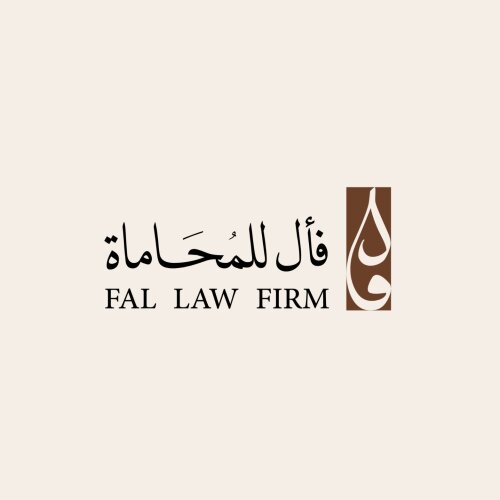Best Real Estate Lawyers in Saudi Arabia
Share your needs with us, get contacted by law firms.
Free. Takes 2 min.
Free Guide to Hiring a Real Estate Lawyer
Or refine your search by selecting a city:
List of the best lawyers in Saudi Arabia

Saudi Arabia Real Estate Legal Questions answered by Lawyers
Browse our 2 legal questions about Real Estate in Saudi Arabia and read the lawyer answers, or ask your own questions for free.
- I have apt for sell in Alex
- السلام عليكم مساء الخير كنت بستشيرك إذا ممكن الوالدة الله يرحمها أتوفت قبل شهرين وانا وكيلها هيا عندها شقة في مصر و ودنا أنا و اخوية نبيعها تقدر تفيدنا فيها او كيف الطريقة
-
Lawyer answer by ItQan - Advocates & Legal consultants
وعليكم السلام. أهلاً وسهلاً. نحتاج نتطلع على سند الملكية وحصر الورثة وإن شاء الله نقدر نساعدك في بيعها.
Read full answer - I want to sell my apt in Alex
- السلام عليكم عليكم مساء الخير كنت بستشيرك إذا ممكن الوالدة الله يرحمها أتوفت قبل شهرين وانا وكيلها هيا عندها شقة في مصر و ودنا أنا و اخوية نبيعها تقدر تفيدنا فيها او كيف الطريقة
-
Lawyer answer by ASR Law Group LLC اتحاد العصر للمحاماة والاستشارات
لا بد من الاطلاع لعى المستندات الملكية ومن ثم يمكننا بيعها بعد التنسيق معكم
Read full answer
Saudi Arabia Real Estate Legal Articles
Browse our 1 legal article about Real Estate in Saudi Arabia written by expert lawyers.
- Buying Property in Saudi Arabia as a Foreigner: Legal Guide
- Most real estate in Saudi Arabia is now tracked and transferred electronically through the Ministry of Justice's Najiz platform, using official title deeds (Sak) that should always be verified before any payment. Property sales are generally subject to a 5% Real Estate Transaction Tax (RETT), while leases are not, but... Read more →
About Real Estate Law in Saudi Arabia
Real Estate in Saudi Arabia has undergone significant transformation in recent years, driven by the country's Vision 2030 initiative. This economic diversification plan aims to reduce Saudi Arabia’s dependence on oil and stimulate other sectors, including real estate. As a result, there has been a surge in real estate development, accompanied by reforms in land laws, property registration processes, and investment regulations. The real estate industry in Saudi Arabia is governed by various laws that regulate transactions, land use, ownership rights, leasing, and development.
Why You May Need a Lawyer
Real estate transactions involve substantial financial commitments and legal intricacies, making legal guidance essential in several situations. Here are some common instances where legal assistance may be required:
- Property Purchase or Sale: Ensuring proper due diligence, contract review, and compliance with legal requirements.
- Lease Agreements: Drafting, reviewing, or negotiating lease terms to protect your interests.
- Dispute Resolution: Addressing conflicts between buyers, sellers, landlords, and tenants.
- Real Estate Development: Navigating zoning laws, permits, and construction contracts.
- Inheritance and Succession: Understanding property rights and distribution according to Sharia law.
- Foreign Investment: Complying with regulations for foreign investors in Saudi real estate.
Local Laws Overview
Understanding the local laws related to real estate is crucial for anyone dealing with property in Saudi Arabia. Here are some key legal elements:
- Sharia Compliance: Real estate transactions and property ownership must align with Islamic law principles.
- Land Ownership: Foreigners face restrictions in certain areas but can own property through leasehold agreements in economic cities.
- Property Registration: The Saudi Arabian General Authority for Real Estate is responsible for registering property transactions.
- Mortgage Law: Recent law reforms have introduced regulations governing mortgage financing and securities.
- Real Estate Transactions Regulation: Aims to increase transparency and efficiency in property transactions.
- REITs (Real Estate Investment Trusts): Provides a regulated investment vehicle for both local and international investors.
Frequently Asked Questions
What is required to purchase property in Saudi Arabia?
Saudi nationals and GCC citizens can freely purchase property. Foreigners are generally restricted but may invest in some areas through leasehold agreements or specific licenses for foreign investment.
How does the mortgage system work in Saudi Arabia?
The mortgage system, governed by various regulations, allows banks and financial institutions to provide home financing. A key feature is the requirement for Sharia-compliant financial products.
Can foreigners inherit property in Saudi Arabia?
Inheritance for foreigners is possible but generally subject to specific conditions under Sharia law, including the need to transfer the property title within permissible categories.
What rights do tenants have under Saudi law?
Tenants have the right to fair rental agreements, which can be registered with the leasing system to ensure clarity on lease terms and conditions. Dispute mechanisms are available for tenant-landlord conflicts.
Are there protections for real estate buyers against fraud?
The government has implemented various measures, including transparent registration procedures and oversight by the Saudi Real Estate Authority, to protect buyers from fraudulent transactions.
Is it necessary to register a real estate transaction?
Yes, all real estate transactions must be registered with the appropriate Saudi authority to ensure legality and protect ownership rights.
What are the key legal issues in real estate development?
Key legal issues include compliance with zoning laws, obtaining necessary permits and approvals, and negotiating contracts for construction and services.
What taxes apply to real estate transactions?
The value-added tax (VAT) applies to real estate property sales and leases, while the white land tax applies to undeveloped urban land to encourage development.
How are real estate disputes resolved?
Real estate disputes can be resolved through negotiation, mediation, or litigation in specialized courts, with legal advice often beneficial to navigate these processes.
Are there special considerations for commercial property transactions?
Commercial property transactions involve additional considerations such as zoning laws, restrictions on foreign ownership, and specific contractual obligations for commercial leases.
Additional Resources
Here are some valuable resources and organizations for legal advice in Saudi real estate:
- Saudi Ministry of Housing: Provides information on housing initiatives and regulations.
- Saudi Real Estate Authority: Offers guidance and oversight on real estate practices and registration processes.
- SAGIA (Saudi Arabian General Investment Authority): Assists with foreign investment-related queries.
- Saudi Bar Association: Facilitates finding qualified legal professionals specializing in real estate law.
Next Steps
If you find yourself needing legal assistance in real estate matters, consider the following steps:
- Identify Your Needs: Clearly define the legal issue or assistance required.
- Research Qualified Lawyers: Look for professionals with expertise in Saudi real estate law through the Saudi Bar Association or recommendations.
- Schedule a Consultation: Meet with a lawyer to discuss your case, understand potential legal actions, and fees involved.
- Gather Relevant Documents: Organize and present pertinent documentation related to your real estate matter for your lawyer’s review.
- Follow Legal Advice: Work closely with your lawyer to navigate the legal processes and achieve a satisfactory resolution.
Lawzana helps you find the best lawyers and law firms in Saudi Arabia through a curated and pre-screened list of qualified legal professionals. Our platform offers rankings and detailed profiles of attorneys and law firms, allowing you to compare based on practice areas, including Real Estate, experience, and client feedback.
Each profile includes a description of the firm's areas of practice, client reviews, team members and partners, year of establishment, spoken languages, office locations, contact information, social media presence, and any published articles or resources. Most firms on our platform speak English and are experienced in both local and international legal matters.
Get a quote from top-rated law firms in Saudi Arabia — quickly, securely, and without unnecessary hassle.
Disclaimer:
The information provided on this page is for general informational purposes only and does not constitute legal advice. While we strive to ensure the accuracy and relevance of the content, legal information may change over time, and interpretations of the law can vary. You should always consult with a qualified legal professional for advice specific to your situation.
We disclaim all liability for actions taken or not taken based on the content of this page. If you believe any information is incorrect or outdated, please contact us, and we will review and update it where appropriate.
Browse real estate law firms by service in Saudi Arabia
Saudi Arabia Attorneys in related practice areas.
Browse real estate law firms by city in Saudi Arabia
Refine your search by selecting a city.
















